An ileostomy is an opening constructed in the terminal ileum to treat regional and ulcerative colitis and to divert intestinal contents in colon cancer, polyps, and trauma. It is usually done when the entire colon, rectum, and anus must be removed, in which case the ileostomy is permanent. A temporary ileostomy is done to provide complete bowel rest in conditions such as chronic colitis and in some trauma cases.
A colostomy is a diversion of the effluent of the colon and may be temporary or permanent. Ascending, transverse, and sigmoid colostomies may be performed. A transverse colostomy is usually temporary. A sigmoid colostomy is the most common permanent stoma, usually performed for cancer treatment.
Nursing Care Plans and Management
Nursing care management and planning for patients with ileostomy or colostomy include: assisting the patient and/or SO during the adjustment, preventing complications, supporting independence in self-care, provide information about procedure/prognosis, treatment needs, and potential complications.
Nursing Problem Priorities
The following are the nursing priorities for patients with ileostomy and colostomy:
- Ensure proper stoma care and maintenance.
- Manage ostomy-related complications, such as skin irritation or leakage.
- Educate patients on self-care and appliance management.
- Promote dietary adjustments to prevent blockages or other digestive issues.
- Address body image and psychosocial concerns related to living with an ostomy.
- Provide support for ostomy adjustment and lifestyle modifications.
- Offer guidance on odor control and managing gas buildup.
- Monitor and manage complications, such as infection or prolapse.
- Collaborate with an ostomy nurse or specialist for comprehensive care.
- Schedule regular follow-up appointments for ongoing assessment and support.
Nursing Assessment
Assess for the following subjective and objective data:
- Invasion of body structure (e.g., perineal resection)
- Stasis of secretions/drainage
- Altered circulation, edema; malnutrition
Nursing Diagnosis
Following a thorough assessment, a nursing diagnosis is formulated to specifically address the challenges associated with fecal diversions (colostomy, ileostomy) based on the nurse’s clinical judgement and understanding of the patient’s unique health condition. While nursing diagnoses serve as a framework for organizing care, their usefulness may vary in different clinical situations. In real-life clinical settings, it is important to note that the use of specific nursing diagnostic labels may not be as prominent or commonly utilized as other components of the care plan. It is ultimately the nurse’s clinical expertise and judgment that shape the care plan to meet the unique needs of each patient, prioritizing their health concerns and priorities.
Nursing Goals
Goals and expected outcomes may include:
- The client will maintain skin integrity around the stoma.
- The client will identify individual risk factors.
- The client will demonstrate behaviors/techniques to promote healing/prevent skin breakdown.
- The client will verbalize that pain is relieved/controlled.
- The client will display relief from pain, able to sleep/rest appropriately
- The client will demonstrate the use of relaxation skills and general comfort measures as indicated for an individual situation.
Nursing Interventions and Actions
Therapeutic interventions and nursing actions for patients with fecal diversions (colostomy, ileostomy) may include:
1. Managing Ostomy Care and Wound Care
Inspect the stoma and peristomal skin area with each pouch change. Note irritation, bruises (dark, bluish color), rashes
Monitors the healing process and effectiveness of appliances and identifies areas of concern, need for further evaluation, and intervention. Early identification of stomal necrosis or ischemia or fungal infection (from changes in normal bowel flora) provides for timely interventions to prevent serious complications. Stoma should be red and moist. Ulcerated areas on the stoma may be from a pouch opening that is too small or a faceplate that cuts into the stoma. In patients with an ileostomy, the effluent is rich in enzymes, increasing the likelihood of skin irritation. In patients with a colostomy, skin care is not as great a concern because the enzymes are no longer present in the effluent.
Measure stoma periodically: at least weekly for the first 6 wk, then once a month for 6 mo. Measure both the width and length of the stoma.
As postoperative edema resolves (during the first 6 wk), the stoma shrinks and the size of the appliance must be altered to ensure proper fit so that effluent is collected as it flows from the ostomy and contact with the skin is prevented.
Investigate reports of burning, itching, or blistering around the stoma.
Indicative of effluent leakage with peristomal irritation, or possibly Candida infection, requiring intervention.
Clean with warm water and pat dry. Use soap only if the area is covered with a sticky stool. If the paste has collected on the skin, let it dry, then peel it off.
Maintaining a clean and dry area helps prevent skin breakdown.
Verify that the opening on the adhesive backing of the pouch is at least 1⁄16 to 1⁄8 in (2–3 mm) larger than the base of the stoma, with adequate adhesiveness left to apply the pouch.
Prevents trauma to the stoma tissue and protects the peristomal skin. An adequate adhesive area prevents the skin barrier wafer from being too tight. Note: Too tight a fit may cause stomal edema or stenosis.
Use a transparent, odor-proof drainable pouch.
A transparent appliance during the first 4–6 wk allows easy observation of the stoma without the necessity of removing the pouch/irritating skin.
Apply appropriate skin barrier: hydrocolloid wafer, Karaya gun, extended-wear skin barrier, or similar products.
Protects skin from pouch adhesive, enhances adhesiveness of pouch, and facilitates removal of the pouch when necessary. Note: Sigmoid colostomy may not require the use of a skin barrier once stool becomes formed and elimination is regulated through irrigation.
Empty, irrigate, and cleanse the ostomy pouch on a routine basis, using appropriate equipment.
Frequent pouch changes are irritating to the skin and should be avoided. Emptying and rinsing the pouch with the proper solution not only removes bacteria and odor-causing stool and flatus but also deodorizes the pouch.
Support surrounding skin when gently removing the appliance. Apply adhesive removers as indicated, then wash thoroughly.
Prevents tissue irritation or destruction associated with “pulling” the pouch off.
Evaluate adhesive product and appliance fit on an ongoing basis.
Provides an opportunity for problem-solving. Determines the need for further intervention.
Consult with a certified wound, ostomy, and continence nurse.
Helpful in choosing products appropriate for the patient’s particular rehabilitation needs, including the type of ostomy, physical/mental status, abilities to handle self-care, and financial resources.
Apply corticosteroid aerosol spray and prescribed antifungal powder as indicated.
Assists in healing if peristomal irritation persists and/or fungal infection develops. Note: These products can have potent side effects and should be used sparingly.
Observe wounds, and note characteristics of drainage.
Postoperative hemorrhage is most likely to occur during the first 48 hr, whereas infection may develop at any time. Depending on the type of wound closure (e.g., first or second intention), complete healing may take 6-8 mo.
Change dressings as needed using an aseptic technique
Large amounts of serous drainage require that dressings be changed frequently to reduce skin irritation and the potential for infection.
Encourage a side-lying position with the head elevated. Avoid prolonged sitting.
Promotes drainage from perineal wounds/drains, reducing the risk of pooling. Prolonged sitting increases perineal pressure, reducing circulation to the wound, and may delay healing.
Irrigate the wound as indicated, using normal saline (NS), diluted hydrogen peroxide, or antibiotic solution.
May be required to treat preoperative inflammation and/or infection or intraoperative contamination.
Provide sitz baths.
Promotes cleanliness and facilitates healing, especially after packing is removed (usually days 3–5).
2. Supporting a Positive Body Image
Note behaviors of withdrawal increased dependency, manipulation, or non-involvement in care.
Suggestive problems in adjustment may require further evaluation and more extensive therapy.
Ascertain whether support and counseling were initiated when the possibility and/or necessity of ostomy was first discussed.
Provides information about the patient’s/SO’s level of knowledge and anxiety about an individual situation.
Encourage the patient/SO to verbalize feelings regarding the ostomy. Acknowledge the normality of feelings of anger, depression, and grief over a loss. Discuss daily “ups and downs” that can occur.
Helps the patient realize that feelings are not unusual and that feeling guilty about them is not necessary or helpful. The patient needs to recognize feelings before they can be dealt with effectively.
Review the reason for surgery and future expectations.
Patients may find it easier to accept or deal with an ostomy done to correct chronic or long-term disease than for traumatic injury, even if the ostomy is only temporary. Also, patients who will be undergoing a second procedure (to convert ostomy to a continent or anal reservoir) may possibly encounter less severe self-image problems because body function eventually will be “more normal.”
Provide opportunities for the patient/SO to view and touch the stoma, using the moment to point out positive signs of healing, normal appearance, and so forth. Remind the patient that it will take time to adjust, both physically and emotionally.
Although integration of a stoma into body image can take months or even years, looking at the stoma and hearing comments (made in a normal, matter-of-fact manner) can help the patient with this acceptance. Touching the stoma reassures the patient/SO that it is not fragile and that slight movements of the stoma actually reflect normal peristalsis.
Provide an opportunity for the patient to deal with ostomy through participation in self-care.
Independence in self-care helps improve self-confidence and acceptance of the situation.
Plan/schedule care activities with the patient.
Promotes a sense of control and gives a message that the patient can handle the situation, enhancing self-concept.
Maintain a positive approach during care activities, avoiding expressions of disdain or revulsion. Do not take angry expressions of the patient and SO personally.
Assists patient and SO to accept body changes and feel all right about self. Anger is most often directed at the situation and lack of control an individual has over what has happened (powerlessness), not at the individual caregiver.
Ascertain the patient’s desire to visit with a person with an ostomy. Make arrangements for a visit, if desired.
A person who is living with an ostomy can be a good support system/role model. Helps reinforce teaching (shared experiences) and facilitates acceptance of change as the patient realizes “life does go on” and can be relatively normal.
3. Managing Acute Pain
Assess pain, noting location, characteristics, and intensity (0–10 scale).
Helps evaluate the degree of discomfort and effectiveness of analgesia or may reveal developing complications. Because abdominal pain usually subsides gradually by the third or fourth postoperative day, continued or increasing pain may reflect delayed healing or peristomal skin irritation. Note: Pain in the anal area associated with abdominal-perineal resection may persist for months.
Investigate and report abdominal muscle rigidity, involuntary guarding, and rebound tenderness.
Suggestive of peritoneal inflammation, which requires prompt medical intervention.
Encourage the patient to verbalize concerns. Active-listen to these concerns, and provide support by accepting, remaining with the patient, and giving the appropriate information.
Reduction of anxiety/fear can promote relaxation or comfort.
Provide comfort measures, e.g., mouth care, back rub, and repositioning (use proper support measures as needed). Assure the patient that the position change will not injure the stoma.
Prevents drying of oral mucosa and associated discomfort. Reduces muscle tension, promotes relaxation, and may enhance coping abilities.
Encourage the use of relaxation techniques, e.g., guided imagery, and visualization. Provide diversional activities.
Helps the patient rest more effectively and refocus attention, thereby reducing pain and discomfort.
Assist with ROM exercises and encourage early ambulation. Avoid prolonged sitting positions.
Reduces muscle/joint stiffness. Ambulation returns organs to normal position and promotes the return of the usual level of functioning. Note: The presence of edema, packing, and drains (if perineal resection has been done) increases discomfort and creates a sense of needing to defecate. Ambulation and frequent position changes reduce perineal pressure.
Provide sitz baths.
Relieves local discomfort, reduces edema, and promotes healing of the perineal wounds.
Administer medication as indicated, e.g., narcotics, analgesics, and patient-controlled analgesia (PCA).
Relieves pain, enhances comfort, and promotes rest. PCA may be more beneficial, especially following anal-perineal repair.
Apply/monitor the effects of the transcutaneous electrical nerve stimulator (TENS) unit.
Cutaneous stimulation may be used to block the transmission of the pain stimulus.
4. Supporting Sexual Function
Determine patient’s/SO’s sexual relationship before the disease and/or surgery and whether they anticipate problems related to the presence of ostomy.
Identifies future expectations and desires. Mutilation and loss of privacy and/or control of a bodily function can affect the patient’s view of personal sexuality. When coupled with the fear of rejection by SO, the desired level of intimacy can be greatly impaired. Sexual needs are very basic, and the patient will be rehabilitated more successfully when a satisfying sexual relationship is continued and/or developed as desired.
Reinforce the information given by the physician. Encourage questions. Provide additional information as needed.
Reiteration of data previously given assists patient/SO to hear and process the knowledge again, moving toward acceptance of individual limitations or restrictions and prognosis (that it may take up to 2 yr to regain potency after a radical procedure or that a penile prosthesis may be necessary).
Review with the patient and/or SO sexual functioning in relation to own situation.
Understanding if nerve damage has altered normal sexual functioning helps patient/SO to understand the need for exploring alternative methods of satisfaction.
Discuss the likelihood of a resumption of sexual activity in approximately 6 wk after discharge, beginning slowly and progressing (cuddling, caressing until both partners are comfortable with body image and/or function changes). Include alternative methods of stimulation as appropriate.
Knowing what to expect in progress of recovery helps the patient avoid performance anxiety and/or reduce the risk of “failure.” If the couple is willing to try new ideas, this can assist with adjustment and may help to achieve sexual fulfillment.
Encourage dialogue between partners. Suggest wearing pouch cover, T-shirt, shortie nightgown, or underwear sexual activity.
Disguising ostomy appliance may aid in reducing feelings of self-consciousness, embarrassment during specifically designed for sexual contact.
Stress awareness of factors that might be distracting (unpleasant odors and pouch leakage). Encourage use of a sense of humor.
Promotes resolution of solvable problems. Laughter can help individuals deal more effectively with a difficult situation, promote positive sexual experience.
Problem-solve alternative positions for coitus.
Minimizing the awkwardness of appliance and physical discomfort can enhance satisfaction.
Discuss or role play possible interactions or approaches when dealing with new sexual partners.
Rehearsal is helpful in dealing with actual situations when they arise, preventing self-consciousness about “different” body image.
Provide birth control information as appropriate and stress that impotence does not necessarily mean the patient is sterile.
Confusion may exist that can lead to an unwanted pregnancy.
Arrange a meeting with an ostomy visitor if appropriate.
Sharing of how these problems have been resolved by others can be helpful and reduce a sense of isolation.
Refer to sex counseling or therapy if appropriate.
If problems persist longer than several months after surgery, a trained therapist may be required to facilitate communication between patient and SO.
5. Enhancing Sleep Pattern
Explain the necessity to monitor intestinal function in the early postoperative period.
Patient is more apt to be tolerant of disturbances by staff if he or she understands the reasons for or importance of care.
Provide necessary pouching system. Empty pouch before retiring and on a pre-agreed schedule.
Excessive flatus can occur despite interventions. Emptying on a regular schedule minimizes threat of leakage.
Let the patient know that stoma will not be injured when sleeping.
Helps the patient to rest better if he is secure about stoma and ostomy function.
Restrict intake of caffeine-containing foods or fluid.
Caffeine may delay the patient falling asleep and interfere with REM (rapid eye movement) sleep, resulting in patient not feeling well rested.
Support continuation of usual bedtime rituals.
Promotes relaxation and readiness for sleep.
Determine the cause of excessive flatus or effluent. Confer with dietitian regarding restriction of foods if diet-related.
Identification of cause enables the institution of corrective measures that may promote sleep/rest.
Administer analgesics, sedatives at bedtime as indicated.
Pain can interfere with a patient’s ability to fall or remain asleep. Timely medication can enhance rest and sleep during the initial postoperative period. Note: Pain pathways in the brain lie near the sleep center and may contribute to wakefulness.
6. Regulating Bowel Function
Ascertain patient’s previous bowel habits and lifestyle.
Assists in the formulation of a timely or effective irrigating schedule for a patient with a colostomy, if appropriate.
Investigate delayed onset or absence of effluent. Auscultate bowel sounds.
Postoperative paralytic and/or adynamic ileus usually resolves within 48–72 hr and ileostomy should begin draining within 12–24 hr. Delay may indicate persistent ileus or stomal obstruction, which may occur postoperatively because of edema, improperly fitting pouch (too tight), prolapse, or stenosis of the stoma.
Inform patient with an ileostomy that initially the effluent is liquid. If constipation occurs, it should be reported to enterostomal nurse or physician.
Although the small intestine eventually begins to take on water-absorbing functions to permit a more semi-solid, pasty discharge, constipation may indicate an obstruction. Absence of stool requires emergency medical attention.
Review dietary pattern and amount, type of fluid intake.
Adequate intake of fiber and roughage provides bulk, and fluid is an important factor in determining the consistency of the stool.
Review physiology of the colon and discuss irrigation management of sigmoid ostomy, if appropriate.
This knowledge helps the patient understand individual care needs.
Demonstrate use of irrigation equipment per institution policy or under the guidance of a physician or certified wound, ostomy, continence nurse.
Irrigations may be done on a daily basis if appropriate, although there are differing views on this practice. Many believe cleaning the bowel on a regular basis is helpful. Others believe that this interferes with normal functioning.
Instruct patient in the use of closed-end pouch or a patch, dressing or Band-Aid when irrigation is successful and the sigmoid colostomy effluent becomes more manageable, with stool expelled every 24 hr.
Enables the patient to feel more comfortable socially and is less expensive than regular ostomy pouches.
Involve patient in the care of the ostomy on an increasing basis.
Rehabilitation can be facilitated by encouraging patient independence and control.
Instruct in use of TENS unit if indicated.
Electrical stimulation has been used in some patients to stimulate peristalsis and relieve postoperative ileus.
Obtain a thorough nutritional assessment.
Identifies deficiencies/needs to aid in the choice of interventions.
Auscultate bowel sounds.
Return of intestinal function indicates readiness to resume oral intake.
Resume solid foods slowly.
Reduces the incidence of abdominal cramps, nausea.
Recommend patient increase use of yogurt, buttermilk, and acidophilus preparations.
May help prevent gas and decrease odor formation.
Identify odor-causing foods (e.g., cabbage, fish, beans) and temporarily restrict from the diet. Gradually reintroduce one food at a time.
Sensitivity to certain foods is not uncommon following intestinal surgery. Patient can experiment with food several times before determining whether it is creating a problem.
Suggest patient with ileostomy limit prunes, dates, stewed apricots, strawberries, grapes, bananas, cabbage family, beans, and avoid foods high in cellulose, e.g., peanuts.
These products increase ileal effluent. Digestion of cellulose requires colon bacteria that are no longer present.
Discuss the mechanics of swallowed air as a factor in the formation of flatus and some ways the patient can exercise control.
Drinking through a straw, snoring, anxiety, smoking, ill-fitting dentures, and gulping down food increases the production of flatus. Too much flatus not only necessitates frequent emptying but also can cause leakage from too much pressure within the pouch.
Monitor intake and output (I&O) carefully, and measure liquid stool. Weigh regularly.
Provides direct indicators of fluid balance. The greatest fluid losses occur with an ileostomy, but they generally do not exceed 500–800 mL/day.
Monitor vital signs, noting postural hypotension, and tachycardia. Evaluate skin turgor, capillary refill, and mucous membranes.
Reflects hydration status and/or the possible need for increased fluid replacement.
Monitor laboratory results, e.g., Hct and electrolytes
Detects homeostasis or imbalance, and aids in determining replacement needs
Limit intake of ice chips during the period of gastric intubation.
Ice chips can stimulate gastric secretions and wash out electrolytes.
Administer IV fluid and electrolytes as indicated.
May be necessary to maintain adequate tissue perfusion/organ function.
7. Initiating Patient Education and Health Teachings
Evaluate the patient’s emotional, cognitive, and physical capabilities.
These factors affect the patient’s ability to master care-tasks and willingness to assume responsibility for ostomy care.
Identify symptoms of electrolyte depletion: anorexia, abdominal muscle cramps, feelings of faintness or “cold” in arms, legs, general fatigue, weakness, bloating, decreased sensations in arms or legs.
Loss of colon function altering fluid and electrolyte absorption may result in sodium or potassium deficits requiring dietary correction with foods and fluids high in sodium (bouillon, Gatorade) or potassium (orange juice, prunes, tomatoes, bananas, Gatorade).
Review anatomy, physiology, and implications of surgical intervention. Discuss future expectations, including anticipated changes in the character of effluent.
Provides knowledge base from which patient can make informed choices, and offers an opportunity to clarify misconceptions regarding an individual situation.
Include written, picture (photo, video, Internet) learning resources.
Provides references for obtaining support, equipment, and additional information after discharge to support patient efforts for independence in self-care.
Instruct patient/SO in stomal care. Allot time for return demonstrations and provide positive feedback for efforts.
Promotes positive management and reduces the risk of improper ostomy care and development of complications.
Recommend increased fluid intake during warm weather months.
Loss of normal colon function of conserving water and electrolytes can lead to dehydration and constipation.
Discuss the possible need to decrease salt intake.
Salt can increase ileal output, potentiating the risk of dehydration and increasing frequency of ostomy care needs and/or patient’s inconvenience.
Discuss the need for periodic evaluation and administration of supplemental vitamins and minerals as appropriate.
Depending on portion and amount of bowel resected, lack of absorption may cause deficiencies.
Stress importance of chewing food well, adequate intake of fluids with or following meals, only moderate use of high-fiber foods, avoidance of cellulose.
Reduces the risk of bowel obstruction, especially in a patient with ileostomy.
Review foods that may be a source of flatus. For example: carbonated drinks, beans, beer, cabbages, onions, fish and highly seasoned food.
These foods may be restricted or eliminated, based on individual reaction, for better ostomy control, or it may be necessary to empty the pouch more frequently if they are ingested.
Identify foods associated with diarrhea, such as green beans, broccoli, highly seasoned foods.
Promotes more even effluent and better control of evacuations.
Recommend foods used to manage constipation (bran, celery, raw fruits), and discuss the importance of increased fluid intake.
Proper management can prevent or minimize problems of constipation.
Discuss the resumption of the presurgery level of activity. Suggest emptying the ostomy appliance before leaving home and carrying a fanny pack with fresh supplies. Recommend resources for obtaining attractive appliances and decorative cummerbunds as appropriate.
With a little planning, patient should be able to manage the same degree of activity as previously enjoyed and in some cases increase activity level. A cummerbund can provide both physical and psychological support when the patient is involved in activities such as tennis and swimming.
Talk about the possibility of sleep disturbance, anorexia, loss of interest in usual activities.
“Homecoming depression” may occur, lasting for months after surgery, requiring patience and support and ongoing evaluation as the patient adjusts to living with a stoma.
Explain the necessity of notifying healthcare providers and pharmacists of type of ostomy and avoidance of sustained-release medications.
Presence of ostomy may alter the rate and extent of absorption of oral medications and increase the risk of drug-related complications, e.g., diarrhea or constipation or peristomal excoriation. Liquid, chewable, or injectable forms of medication are preferred for patients with an ileostomy to maximize absorption of the drug.
Counsel patient concerning medication use and problems associated with altered bowel function. Refer to pharmacist for teaching and/or advice as appropriate.
Patient with an ostomy has two key problems: altered disintegration and absorption of oral drugs and unusual or pronounced adverse effects. Some of the medications that these patients may respond to differently include laxatives, salicylates, H2receptor antagonists, antibiotics, and diuretics.
Discuss the effect of medications on effluent, i.e., changes in color, odor, consistency of stool, and need to observe for drug residue indicating incomplete absorption
Understanding decreases anxiety regarding intestinal function and enhances independence in self-care.
Stress necessity of close monitoring of chronic health conditions requiring routine oral medications.
Monitoring of clinical symptoms and serum blood levels is indicated because of altered drug absorption requiring periodic dosage adjustments.
Recommended Resources
Recommended nursing diagnosis and nursing care plan books and resources.
Disclosure: Included below are affiliate links from Amazon at no additional cost from you. We may earn a small commission from your purchase. For more information, check out our privacy policy.
Ackley and Ladwig’s Nursing Diagnosis Handbook: An Evidence-Based Guide to Planning Care
We love this book because of its evidence-based approach to nursing interventions. This care plan handbook uses an easy, three-step system to guide you through client assessment, nursing diagnosis, and care planning. Includes step-by-step instructions showing how to implement care and evaluate outcomes, and help you build skills in diagnostic reasoning and critical thinking.
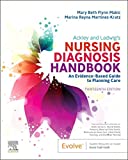
Nursing Care Plans – Nursing Diagnosis & Intervention (10th Edition)
Includes over two hundred care plans that reflect the most recent evidence-based guidelines. New to this edition are ICNP diagnoses, care plans on LGBTQ health issues, and on electrolytes and acid-base balance.
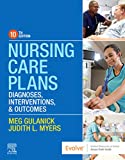
Nurse’s Pocket Guide: Diagnoses, Prioritized Interventions, and Rationales
Quick-reference tool includes all you need to identify the correct diagnoses for efficient patient care planning. The sixteenth edition includes the most recent nursing diagnoses and interventions and an alphabetized listing of nursing diagnoses covering more than 400 disorders.

Nursing Diagnosis Manual: Planning, Individualizing, and Documenting Client Care
Identify interventions to plan, individualize, and document care for more than 800 diseases and disorders. Only in the Nursing Diagnosis Manual will you find for each diagnosis subjectively and objectively – sample clinical applications, prioritized action/interventions with rationales – a documentation section, and much more!
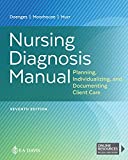
All-in-One Nursing Care Planning Resource – E-Book: Medical-Surgical, Pediatric, Maternity, and Psychiatric-Mental Health
Includes over 100 care plans for medical-surgical, maternity/OB, pediatrics, and psychiatric and mental health. Interprofessional “patient problems” focus familiarizes you with how to speak to patients.
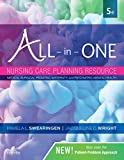
See also
Other recommended site resources for this nursing care plan:
- Nursing Care Plans (NCP): Ultimate Guide and Database MUST READ!
Over 150+ nursing care plans for different diseases and conditions. Includes our easy-to-follow guide on how to create nursing care plans from scratch. - Nursing Diagnosis Guide and List: All You Need to Know to Master Diagnosing
Our comprehensive guide on how to create and write diagnostic labels. Includes detailed nursing care plan guides for common nursing diagnostic labels.
More nursing care plans related to gastrointestinal disorders:
- Appendectomy
- Bowel Incontinence (Fecal Incontinence)
- Cholecystectomy
- Constipation
- Diarrhea Nursing Care Plan and Management
- Cholecystitis and Cholelithiasis
- Gastroenteritis
- Gastroesophageal Reflux Disease (GERD)
- Hemorrhoids
- Hepatitis
- Ileostomy & Colostomy
- Inflammatory Bowel Disease (IBD)
- Intussusception
- Liver Cirrhosis
- Nausea & Vomiting
- Pancreatitis
- Peritonitis
- Peptic Ulcer Disease
- Subtotal Gastrectomy
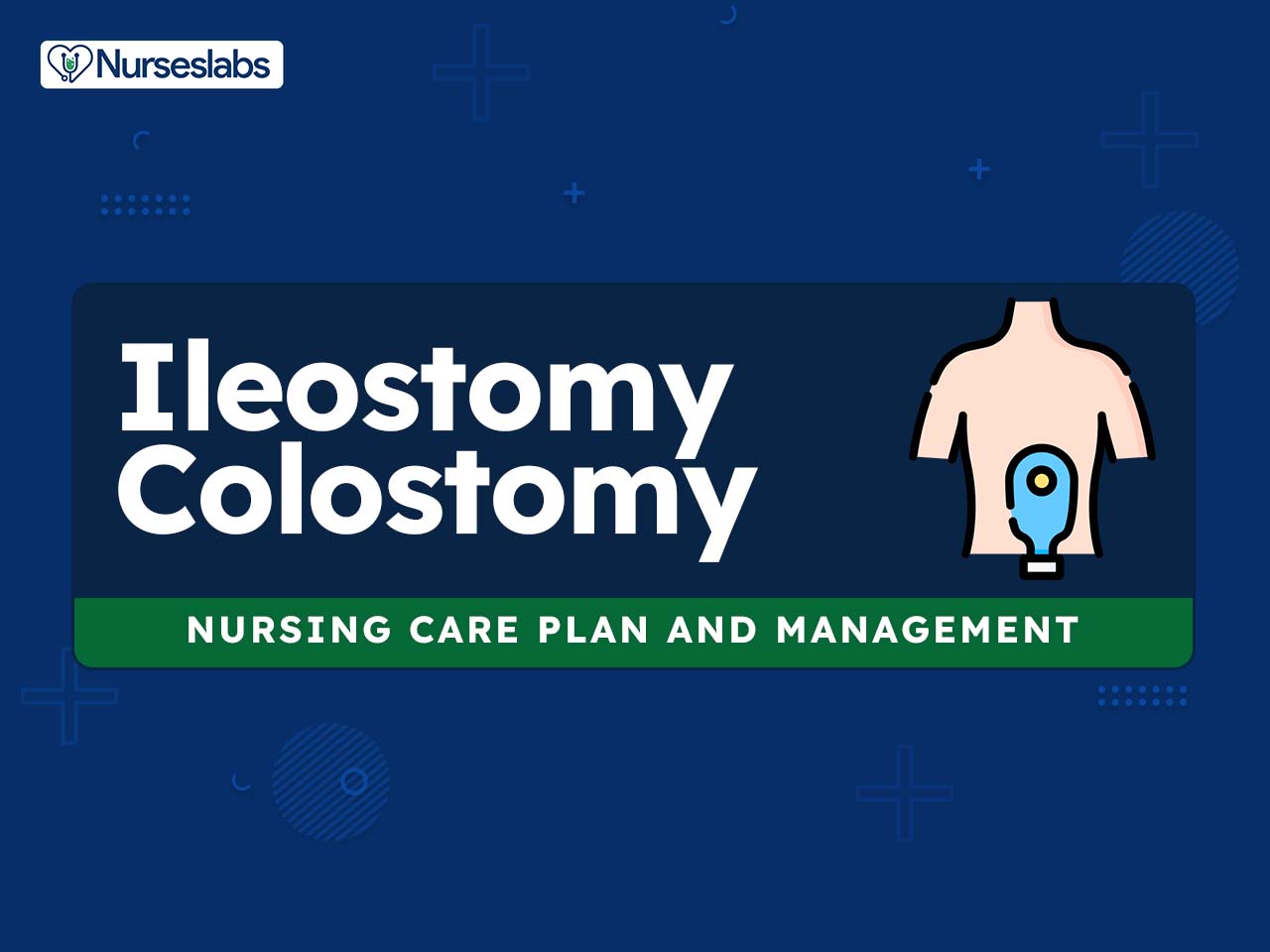
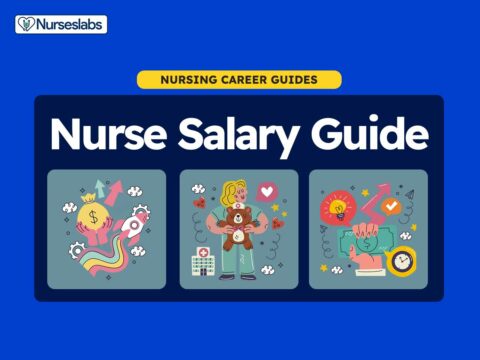
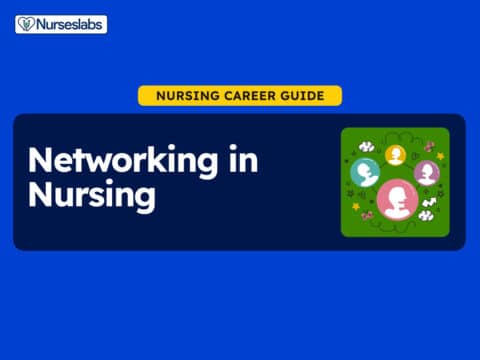

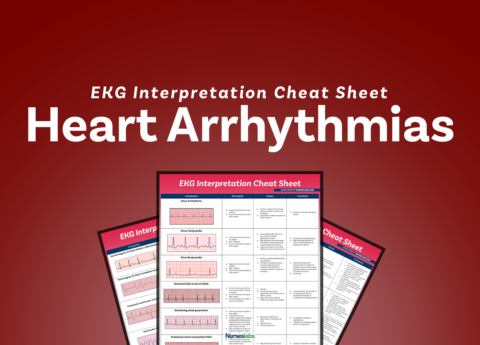

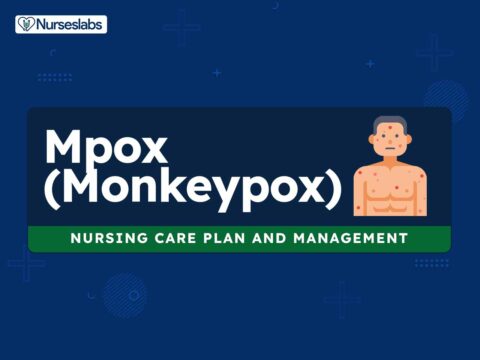


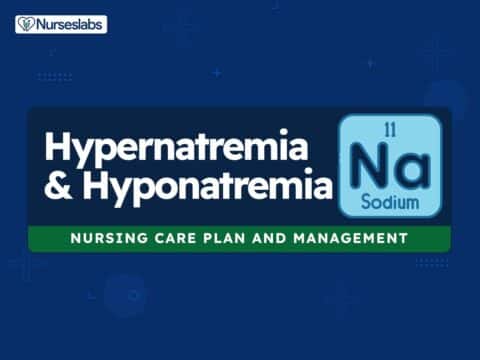


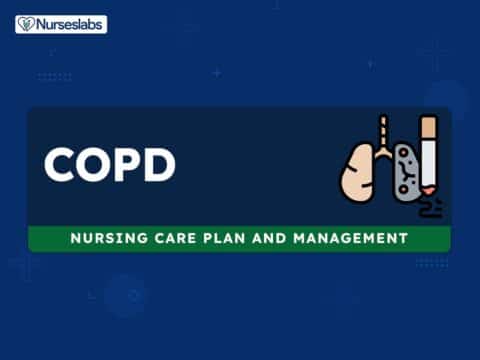
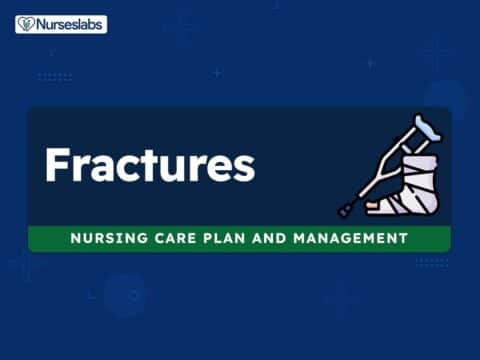
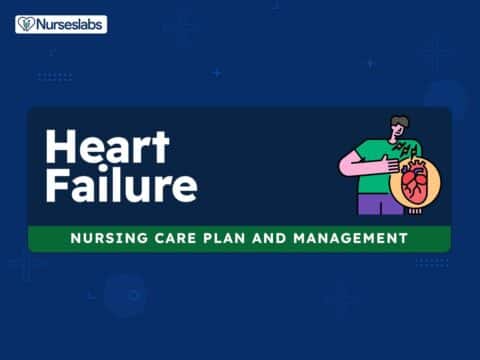
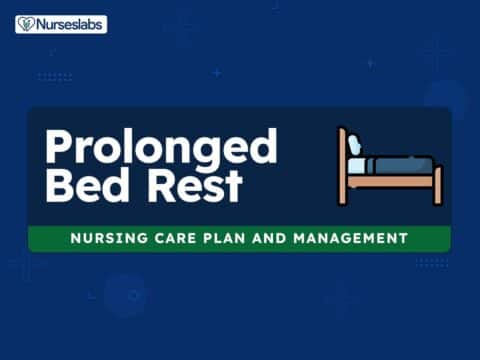
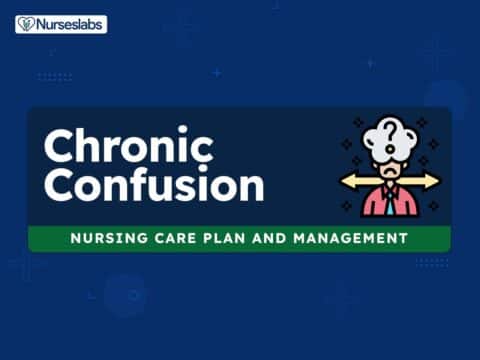
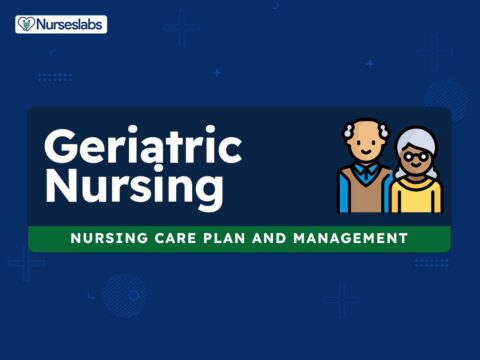
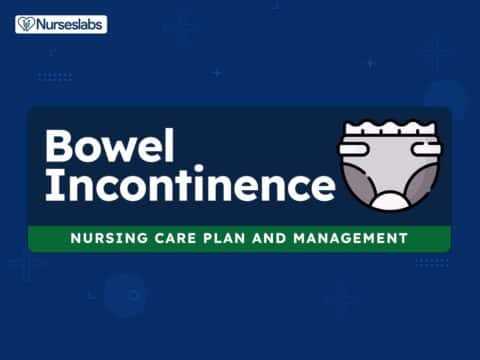
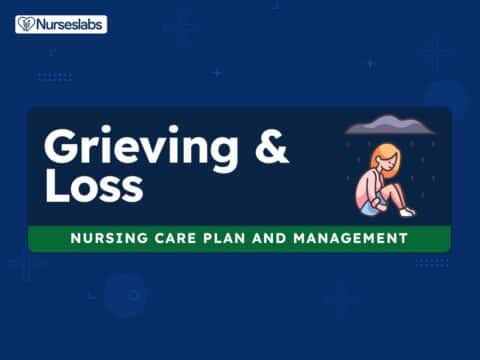
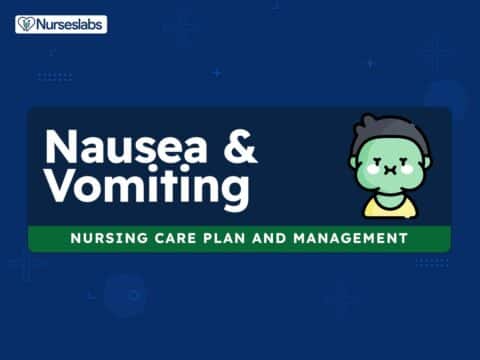
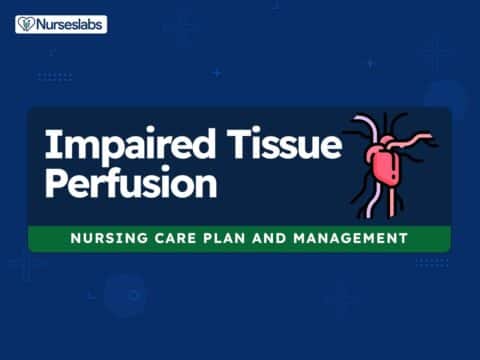

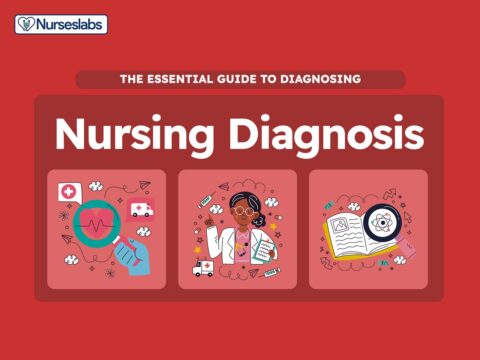
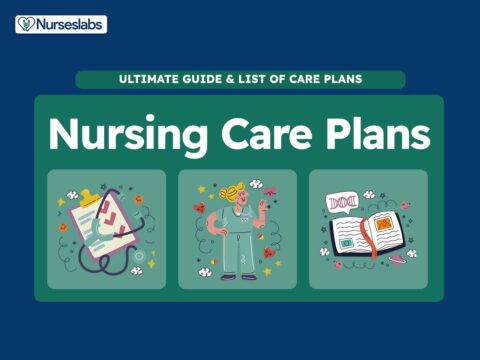
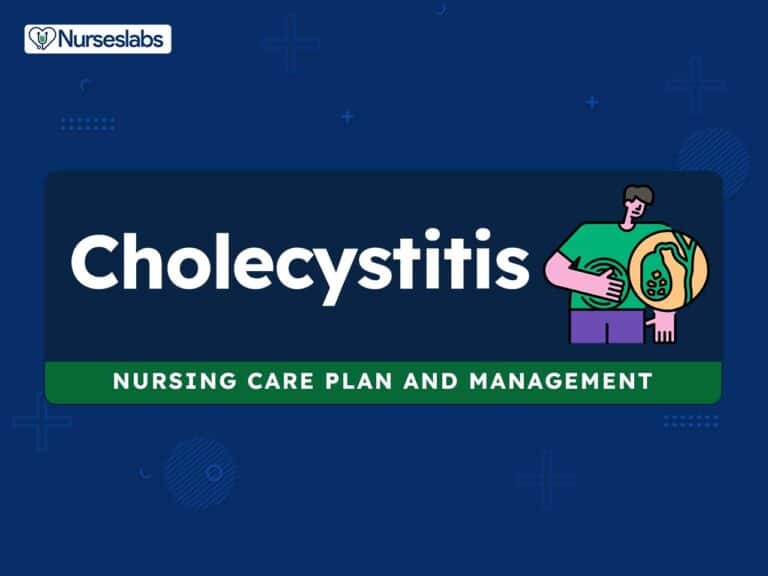
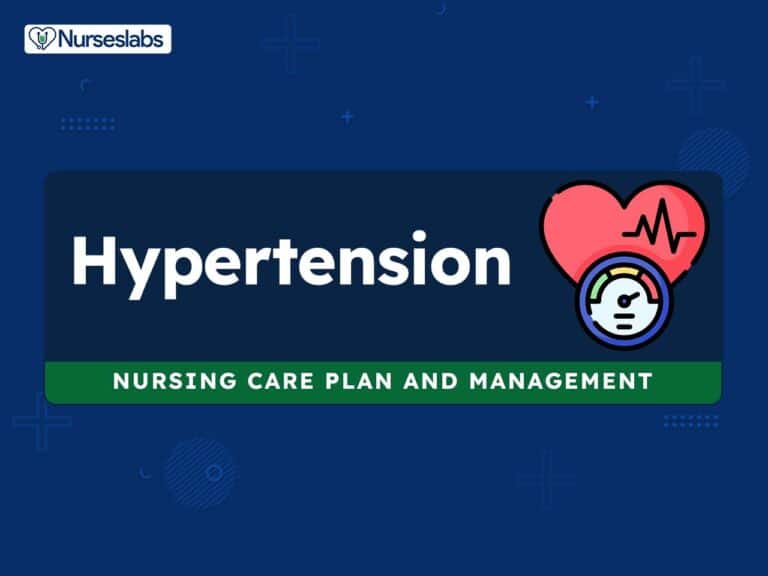
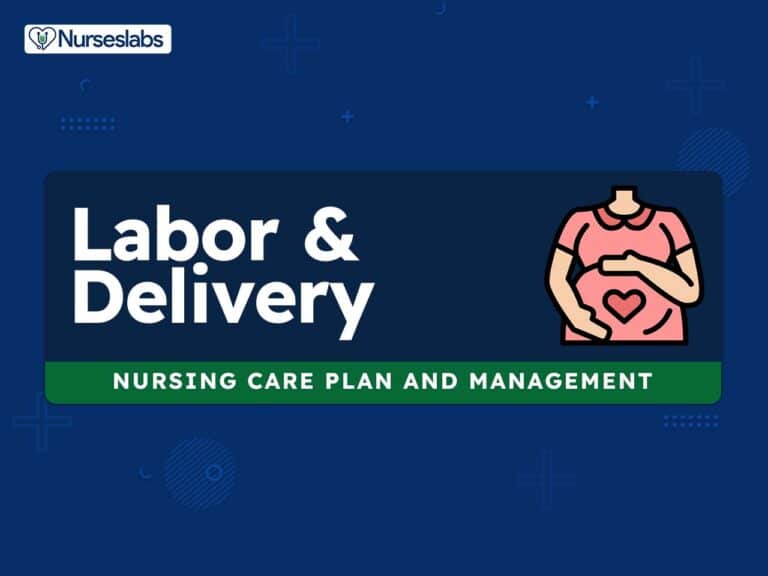


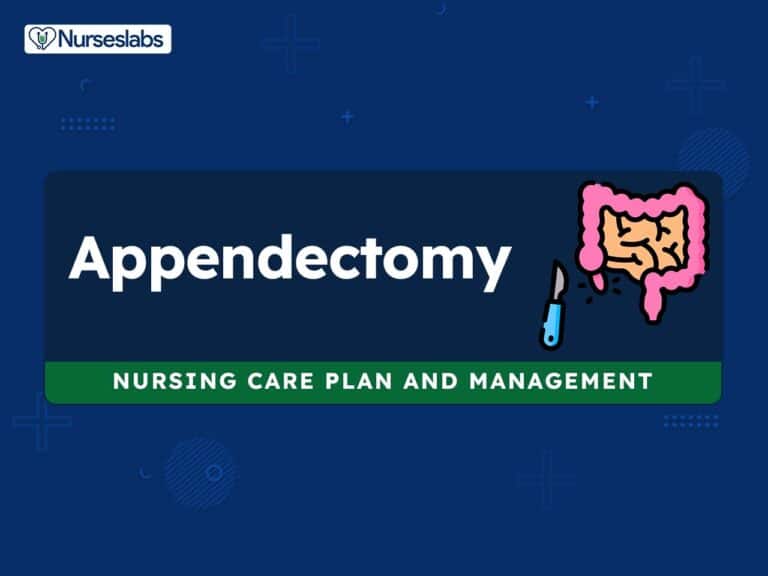

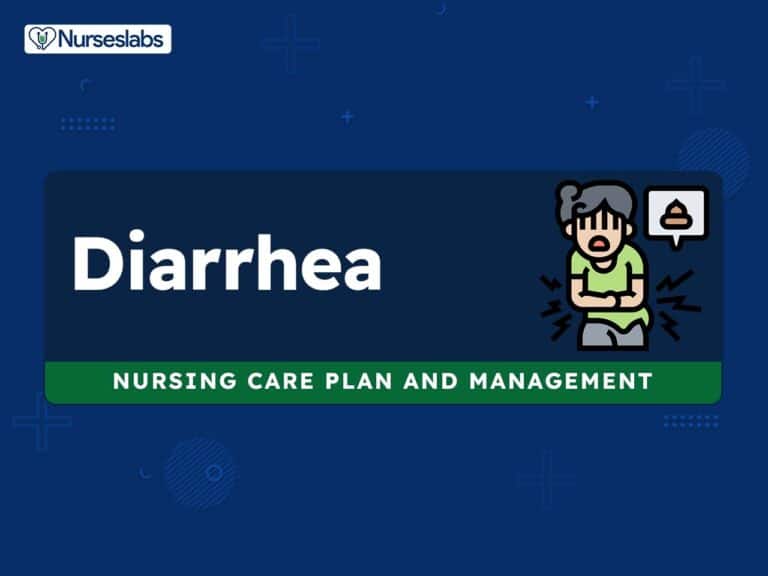
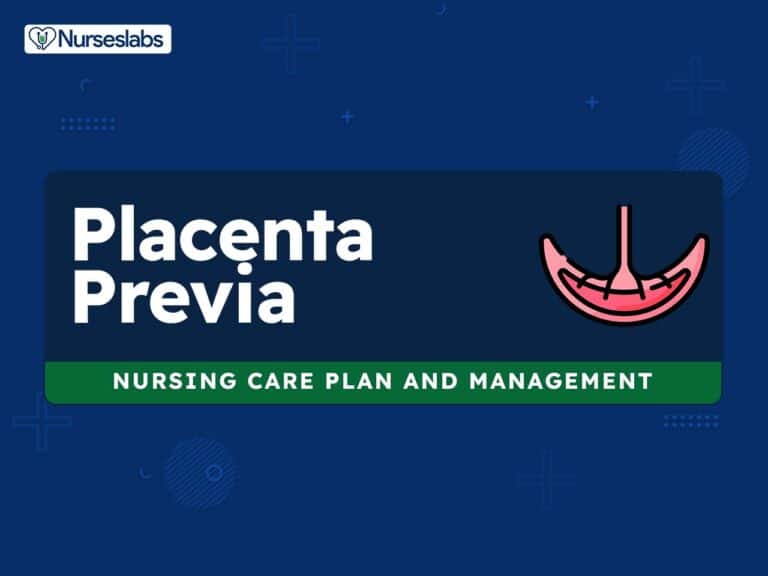
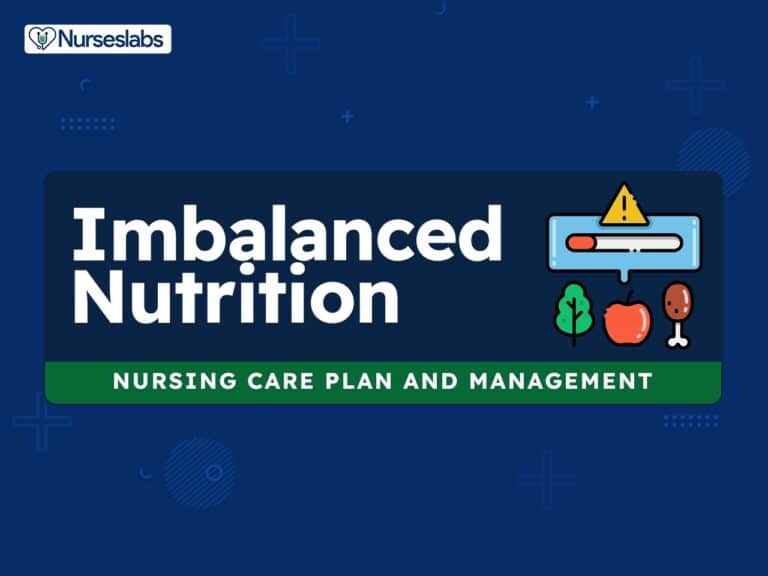
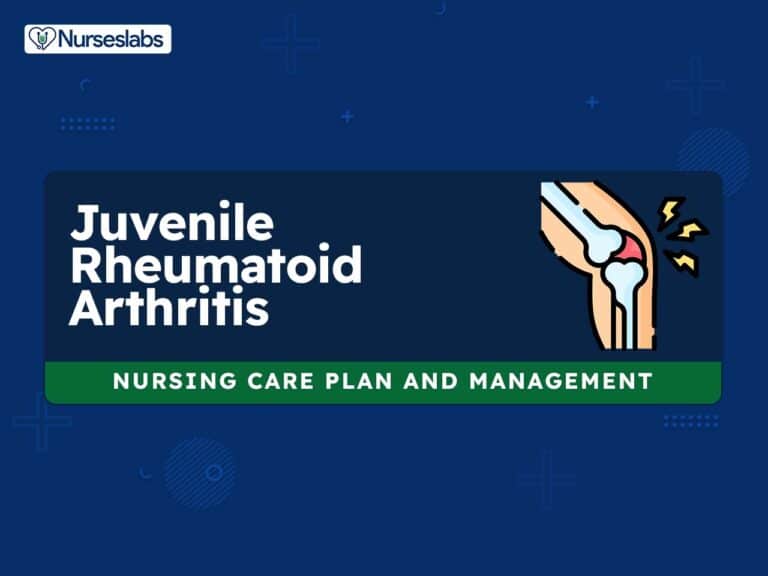
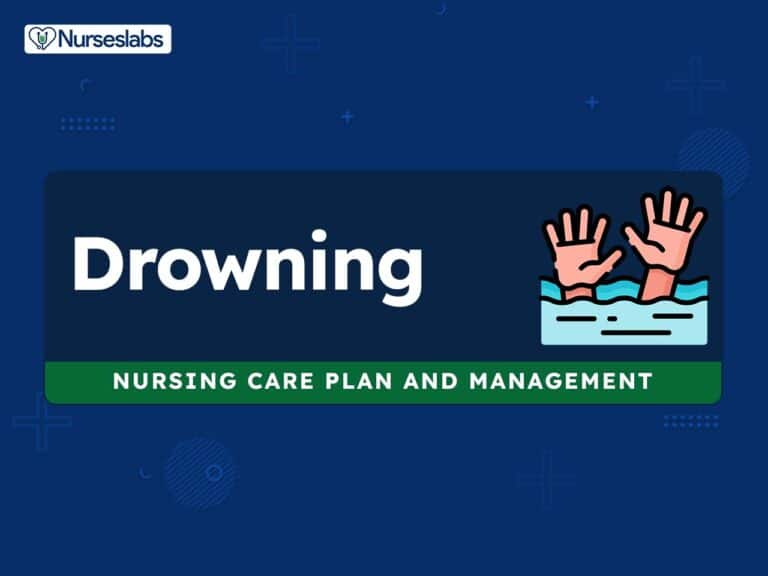
Leave a Comment